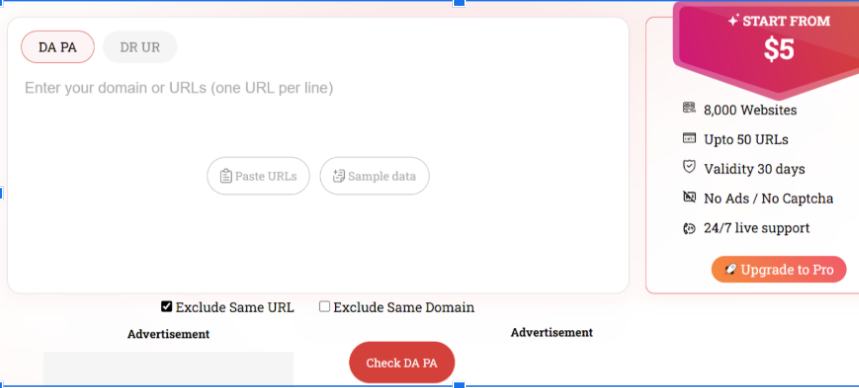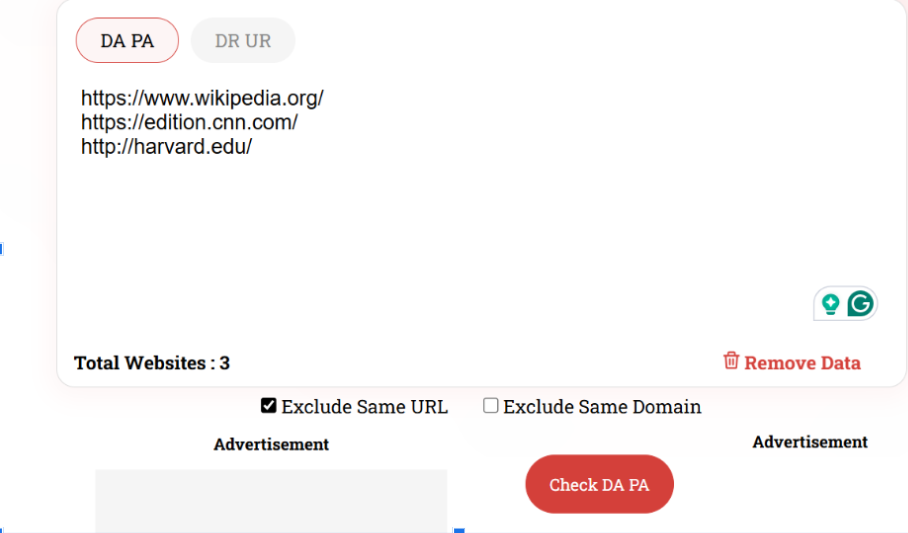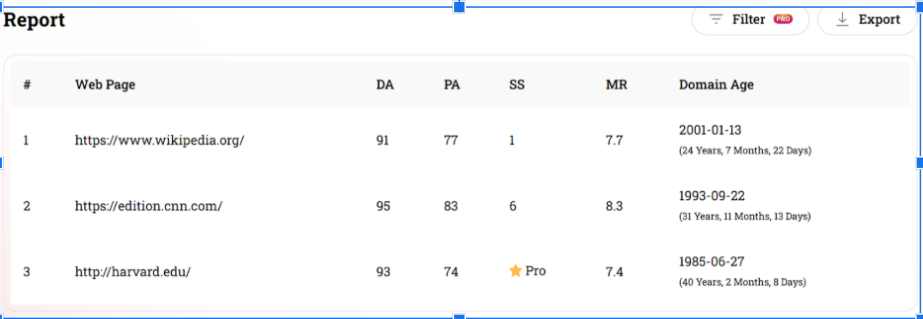How to Check a Website’s Authority Before Building Links

Building backlinks is a very powerful way to grow website visibility on search engines. But not every link helps. Some links can hurt your rankings as well.
That's exactly why checking a website's authority before building links is important. If a site is not trusted by search engines, it can harm your site too.
So, for building strong and healthy backlinks, knowing how to check a website's authority is very important. In this article, we'll explore this in detail.
What Is Website Authority? Why Does It Matter in Link Building?
Website authority is a third-party SEO metric used by tools that estimate the worth of a website. Despite not being an official metric, it's used to guess the ranking of a site.
Different SEO tools use different names for this score. For example, Moz names it Domain Authority (DA). Ahrefs and SEMrush call it Domain Rating (DR) and Authority Score, respectively. All the tools intend to measure similar concepts, but use different insights and strategies. And that’s why the scores provided by these tools may vary from each other.
The score is between 0 and 100. A website with an 80+ score is considered authoritative. Sites like Wikipedia, CNN, or Harvard.edu are some very good examples.
Backlinks are like votes. When a site links to another, it tells search engines that the linked site is trustworthy. But all the votes aren't equal. A link from a reputable site is much more valued than a low-quality one.
If you want to boost your site’s rankings, then build links to a site with these qualities:
- Valuable and quality content
- Up-to-date information
- Well SEO-optimized
- Solid backlink profile
- Strong reputation
- High user engagement
However, linking with low-authority sites is very risky. Google warns that spammy or manipulative backlinks can hurt your site’s rankings. That's why you need to be mindful of checking website authority before link building.
How to Check a Website’s Authority in Easy Steps
Checking a site’s authority is simple and quick. The DA or DR score is calculated by a domain authority checking tool, which usually offers insights for the following metrics:
- Domain Authority (DA)
- Page Authority (PA)
- Spam Score (SS)
- Moz Rank (MR)
- Domain Age
Let’s understand this through an example. We will demonstrate it with a domain authority checker so you know how it’s done. Most of these tools work the same way. Knowing how one works will give you a good idea of how to use such tools. Let’s find out what you need to do:
- Visit the DA checking tool. Here’s how it looks like:

- Enter the website you want to evaluate. You can also check multiple links at once. We entered three website links, as you can see in the following picture:

- After inserting the URLs, click on the “Check DA PA” button. And within seconds, the tool will provide you with the results. The following screenshot shows how it analyzed our provided links:

From the screenshots, we can see that:
- Edition.CNN has a DA of 95
- Harvard.edu scores 93
- Wikipedia has a DA of 91
These are high-authority websites. It means that building links with such websites can be powerful and maximize your site’s rankings. The fast process of Domain Authority Checkers makes them very useful.
Additional Tips for Identifying a Good Website for Link Building
It's important to understand that not every high-authority site is a correct choice. Because sometimes, even a low authority site might also be useful if it's relevant to your niche.
These are the things to keep in mind when identifying the right website for building links.
1. Relevance to Your Niche
A link from a site relevant to your industry is a lot more precious than one from a random site. For example, if your site is about fitness, then a link from a health blog is more valuable than one from a tech site. Relevant links make more sense for search engines.
2. Organic Traffic
Look for a website with real organic traffic. If a site ranks well on Google and has organic visitors, then it's a good sign. You can use different online tools to check a website's traffic and ranking. Sites with low to no traffic will not provide benefits.
3. Updated and Quality Content
The content of the site should provide value and must be up-to-date. If a site hasn't been published recently or has low-quality articles, Google won't trust it. Authority isn't all about links; it's the content and user trust that matter as well.
Today, many marketers even combine manual link-building efforts with ai automation tools to speed up repetitive SEO tasks and make the process more efficient.
If you understand these tips well, then you will be in a better position to decide whether or not to build a link with a site.
Final Thoughts
Checking a website’s authority is a simple but necessary step before building links. It helps you avoid harmful sites and focus on links that bring value to your website.
Using a reliable Domain Authority Checker makes the process fast and easy. It provides you with the data you need to make the right decisions.
Modern SEO relies on quality rather than quantity. Always check and verify the website before building connections with it. Link building with trusted sites will escalate your rankings and grow your website in the long term.





